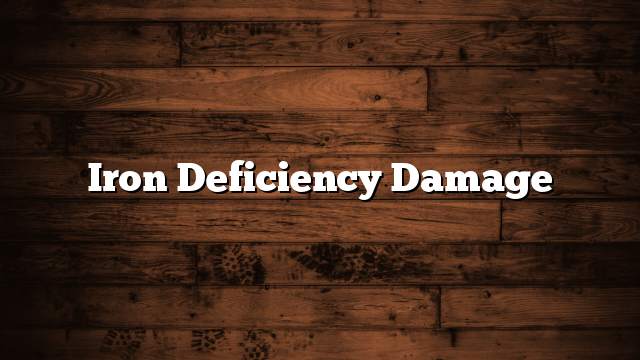Iron
Iron is one of the basic minerals in the body. It is the primary component of the red blood cells that make up most of the blood components and is therefore of great importance to the body. It forms with the red, oxygen-carrying hemoglobin, which is attached to the cells in each heartbeat across the arteries, It saves it from carbon dioxide and returns to the veins.
Iron deficiency
Iron deficiency in the body means poorer blood, and women in general are more likely to lack iron because of the loss of quantity during the menstrual cycle, especially pregnant women because of the increased need for iron, as well as for lactating women, and children, they need iron for their continued growth.
Iron deficiency damage
- Heart disease, which occurs because of the inability of blood to deliver the needs of cells.
- Inflammation of the foot nerve, leading to inability to stand.
- Tension and anxiety without reason.
- Hair loss.
- pain in chest.
- Hypothyroidism.
- Gastrointestinal problems.
- Inflammation of the tongue.
- Paleness of the skin.
- Difficulty concentrating.
- Slow growth for children.
- Feeling dizzy or headache.
- Increase the feeling of cold, especially in the limbs.
Treatment of iron deficiency
Due to the importance of this large element in the body, it must be treated as soon as possible, by:
- Iron-rich foods can be divided into two types, animal foods and plant foods. Iron found in animal sources is different from plant sources, and the body is able to absorb it much more efficiently than iron. Therefore, it is better to concentrate on animal sources to obtain On iron.
- Animal sources rich in iron: red meat, liver and livestock, poultry and hearts, eggs, shellfish.
- Vegetable sources rich in iron: green vegetables such as spinach, green peppers, tomatoes, lentils, soybeans and sesame.
- Eat foods rich in vitamin C; this is because it helps absorb iron and can be obtained from guava, lemon, and oranges.
- Taking iron supplements, there are many types of iron supplements in the form of tablets.
- Do not eat foods that hinder the absorption of iron with the meal containing iron, such as milk and cheese; because they contain calcium, as well as tea, and coffee.
If there is no improvement in the level of iron, you should look for its causes, which can be malabsorption due to a problem in the intestine, or increase the loss during the menstrual cycle due to the use of birth control pills, or the use of IUD to prevent pregnancy.
